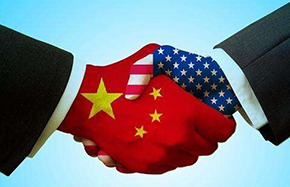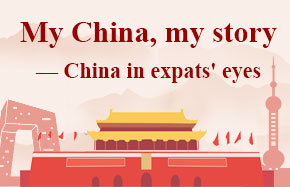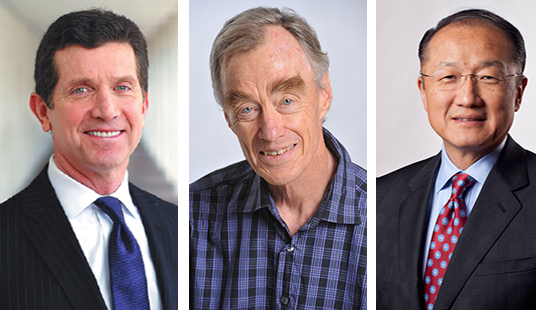Liu Shinan
Liu Shinan is China Daily's assistant editor-in-chief. He writes commentaries on social and cultural issues.
An embrace in the time of a war
[2008-08-13 08:23]At the medal-awarding ceremony after the women's 10m air pistol shooting competition on Sunday, silver medalist Natalia Paderina from Russia and bronze winner Nino Salukvadze from Georgia embraced each other. The scene must have moved everybody who was watching in the shooting range or before the TV screen or who read about the news online or from other media, for everybody knows the significance of the embrace - the two athletes' countries are right now engaged in a military conflict.
A tragedy that shook a nation
[2008-08-06 07:30]Sixteen young lives perished. The young men were killed by terrorists. They were policemen but they were also sons of parents. They belonged to an Armed Police unit but they were unarmed when they were slain in the most brutal way.
Empty words no music to people's ears
[2008-07-30 07:31]The headline of a piece of news online intrigued me. It reads: "Bureau chief plays piano to placate public grievance."
They don't serve who stand & stare
[2008-07-23 07:29]On the morning of July 20, the first day Beijing exercised the rule on alternate permission of vehicles on roads according to their license numbers, I was driving on the Fourth Ring Road as my license number happened to be an even one.
Unity, honor central to Chinese ethos
[2008-07-09 07:26]Today marks the 30-day countdown to the opening of the 29th Olympic Games.
Journeys to this West no great shakes
[2008-06-25 07:20]Mr Herve Ladsous is worthy of his title as French ambassador to China, for he knows his host country pretty well - at least in one matter.
Beware of lectures by fake elites
[2008-06-18 07:36]There is a group of people in this country who regard themselves as the "elites of society". They take themselves to be the most advanced part of society in China's progress toward modernity. They always try to distinguish themselves from the public by saying something special. Their most favorite tactic is to publish an opinion that challenges the masses' common sense. They are best at exaggerating a situation to produce a sensational effect.
Nothing can put such a people down
[2008-06-11 07:51]After the recent earthquake inflicted tremendous sufferings to several provinces and shook half of the Chinese mainland, there was an opinion, as expressed in Internet forums, that "we should learn to stand in awe of nature". What the opinion means, I guess, is that we should not try to challenge the might of nature by bringing any change to it.
Shows of love that moved a billion hearts
[2008-06-04 07:57]According to recent media reports, Japanese Internet users "found with surprise" that hostile comments from Chinese youths against Japan had "decreased dramatically since the earthquake struck (on May 12)."
Warped view of right and wrong
[2008-05-28 07:46]There are often media reports of events in which issues of ethics are involved. These reports often trigger debates among media critics and Internet surfers. In the debates, "human nature" and "human right" are frequently mentioned. In many cases, however, these two concepts are abused.
Upright and united stood the country
[2008-05-21 07:18]After they had observed three minutes of silence to pay their tribute to compatriots lost in the earthquake, the people gathered in the Tian'anmen Square in Beijing on Monday afternoon refused to disperse. Waving national flags and thrusting fists in the air, men and women, the elderly and children shouted, "Stand upright, China; Stand upright, Wenchuan!" and "Long live China!"
Brave boy rings alarm bell for all
[2008-05-14 07:29]Peng Fei, an 11-year-old boy of Jiangjin, Chongqing municipality in Southeast China, saw a man stealing money from an old man on a bus. "Stop, you pickpocket," he shouted. The thief grabbed the boy by the throat and slapped him hard. All the other people on the bus, including the driver and the conductor, watched silently; nobody tried to protect the boy, who burst into tearful cries.










